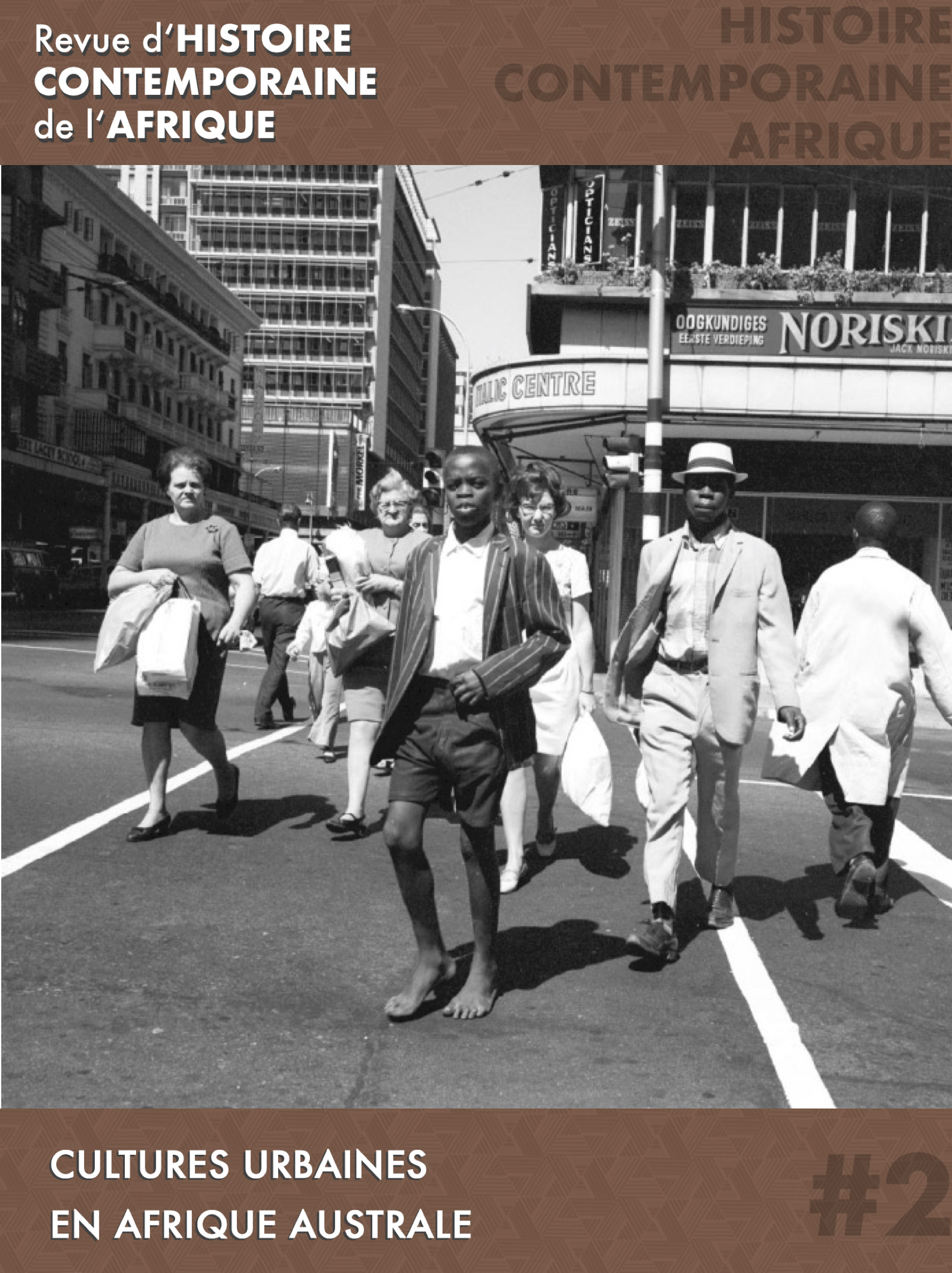The “Vuka Africa” Store
African shopkeepers and urban cultural practices in South Africa under segregation and apartheid, 1880s-1960s
DOI:
https://doi.org/10.51185/journals/rhca.2021.e553Keywords:
urban black culture, food, trade, shopkeepers, segregation, apartheid, consumptionAbstract
Rapid urban growth on the Witwatersrand in South Africa from the late nineteenth century onwards opened up opportunities for a growing class of African hawkers and pedlars, and for “Native” shopkeepers who sought to establish themselves as fixed traders in the urban Native Locations. This article argues that this incipient African business class made a critical contribution to the emergence of a vibrant urban black culture as they fought to establish viable businesses and subvert racist efforts at black exclusion or marginalisation in towns and cities under segregation and apartheid. In the process, they were prominent participants in the development of new and distinctive urban black cultural practices in South Africa, especially with respect to consumption.
References
ABRAHAMS Peter (1954), Tell Freedom, Londres, Faber & Faber.
BALLANTINE Christopher (1993), Marabi Nights. Early South African Jazz and Vaudeville, Johannesburg, Ravan Press.
BURKE Timothy (1996), Lifebuoy Mean, Lux Women. Commodification, Consumption and Cleanliness in Modern Zimbabwe, Durham and London, Duke University Press.
COBLEY Alan (1997), The Rules of the Game. Struggle in Black Recreation and Social Welfare Policy in South Africa, Westport, Greenwood.
DAVENPORT Rodney (1969), « African Townsmen? South African Natives (Urban Areas) Legislation through the Years », African Affairs, 68(271), pp. 95-109.
HELLMANN Ellen (1936), « Urban Native Food in Johannesburg », Africa, 9(2), pp. 277-290.
HELLMANN Ellen (dir.) (1949), Handbook on Race Relations in South Africa, Johannesburg, SAIIR.
HOURANI Guita (2015), « The Struggle of the Christian Lebanese for Land Ownership in South Africa ». En ligne, URL : http://maroniteinstitute.org/MARI/JMS/july00/The_Struggle.htm (consulté le 30 octobre 2020).
JANISCH Miriam (1941), A Survey of African Income and Expenditure in 987 Families in Johannesburg 1940, (pamphlet) Johannesburg, Non-European and Native Affairs Department.
KARIS Thomas et CARTER Gwendolyn (1977), From Protest to Challenge. A Documentary History of African Politics in South Africa 1882-1964, 4, Stanford, Hoover Institution Press.
KUPER Leo (1965), An African Bourgeoisie. Race, Class and Politics in South Africa, New Haven and London, Yale University Press.
KUZWAYO Ellen (1985), Call Me Woman, London, The Women’s Press.
MATHABANE Mark (1986), Kaffir Boy. The True Story of a Black Youth’s Coming of Age in Apartheid South Africa, New York, Free Press.
MPHAHLELE Ezekiel (1959), Down Second Avenue, Londres, Faber & Faber.
ODENDAAL Andre (2003), The Story of an African Game. Black Cricketers and the Unmasking of One of South Africa's Greatest Myths, 1850-2003, Cape Town, David Philip.
POSEL Deborah (2010), « Races to Consume: Revisiting South Africa's History of Race, Consumption and the Struggle for Freedom », Ethnic and Racial Studies, 33(2), pp. 157-175.
REYBURN Lawrence (1960), African Traders. Their Position and Problems in Johannesburg’s South Western Townships. A Fact Paper, Johannesburg, South African Institute for Race Relations, 6.
ROGERSON C. M. (1986), « Feeding the Common People of Johannesburg, 1930-1962 », Journal of Historical Geography, 12(1), pp. 56-73.
SKOTA Trevor Dan Mweli (dir.) (c. 1930), The African Yearly Register. Being an Illustrated National Biographical Dictionary (Who’s Who) of Black Folks in Africa, Johannesburg, R. L. Esson & C°.
SOUTH AFRICA, BUREAU OF CENSUS AND STATISTICS (1960), Union Statistics for Fifty Years, Pretoria, Bureau of Census and Statistics.
Downloads
Published
How to Cite
Issue
Section
License
Some rights reserved 2021 Alan Cobley; Laurent Chauvet, Sophie Dulucq

This work is licensed under a Creative Commons Attribution-NonCommercial 4.0 International License.








